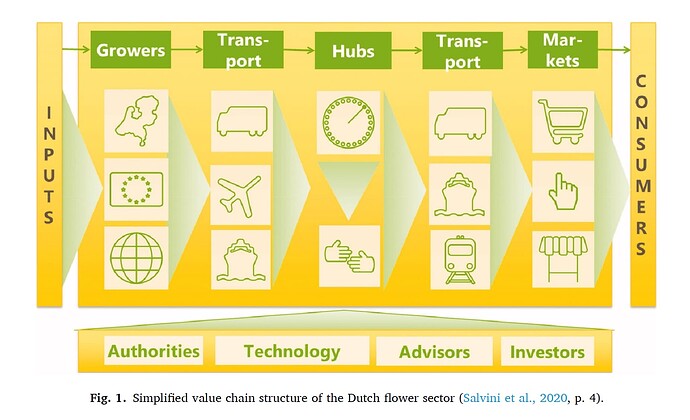Something I’ve been exploring for some time are how digital tools and platforms can both constrain and enable collaboration across agrifood systems value chains. And the importance of governance and self-regulation in supporting and sustaining levels of trust necessary for that to occur equitably. This is also a topic which frequently surfaced in and across several sessions at the GOAT 2022 Conference conference.
This interesting new open access article looks at these topics through a case study of the Dutch flower industry (comments welcomed!):
The enabling and constraining connections between trust and digitalisation in incumbent value chains.
Kelly Rijswijk, Jasper R. de Vries, Laurens Klerkx, James A. Turner,
Technological Forecasting and Social Change, Volume 186, Part A
Redirecting.
(https://www.sciencedirect.com/science/article/pii/S0040162522006965)
Abstract:
Digitalisation is a disruptive socio-technical process that goes beyond digital technologies and their use within an organisation, and involves besides (in many cases radical) technological change, social, institutional and economic change. This creates uncertainties for value chain actors and the trust relationships between them.
In this paper we aim to understand the connections between trust and digitalisation. We investigate how trust relations affect digitalisation, and how digitalisation affects trust relations among value chain actors, using the Dutch flower sector as a case study.
Our findings show that the sector has a high level of interpersonal trust, but limited institutional trust, as the relationships between companies are highly competitive and transactional. In this context, limited trust hinders digitalisation in multiple and mutually reinforcing ways, inducing a vicious cycle whereby existing distrust or limited trust results in limited digitalisation, which in turn causes more distrust due to uncertainties around the digitalisation process, further increased by existing (technological) path dependencies.
Hence there is a need for
1) awareness of mutually reinforcing (dis)trust dynamics and vicious (or virtuous) cycles in relation to digitalisation are needed;
2) higher levels of understanding of what digitalisation entails and
3) joint strategy building and foresighting in the value chain.
Keywords: Co-opetition; Collaboration; Digital transformation; Digitisation; Trust
